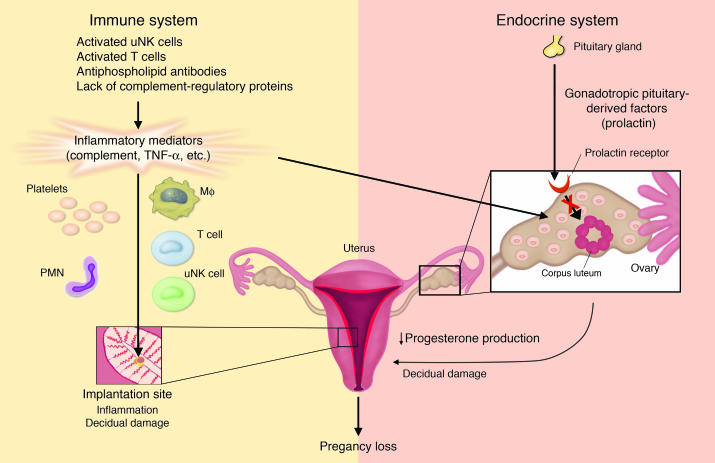Figure 1.
Inflammatory-mediated fetal damage (left): Activation of local inflammatory mediators by uterine NK (uNK) cells, T cells, antiphospholipid antibodies, or by uncontrolled amplification of the alternative pathway of complement leads to decidual damage and fetal injury or death, by initiating activation of the complement cascade and/or generating proinflammatory cytokines. These mediators directly or indirectly activate effector cells, including polymorphonuclear neutrophils (PMNs), macrophages (Mφ), uNK cells, and platelets, to release reactive oxidants, proteolytic enzymes, chemokines, cytokines, and thrombogenic factors. Depending on the extent of damage and stage of gestation, either death in utero or fetal growth restriction ensues. Inflammatory-mediated luteal insufficiency (right): These same initiators may induce fetal loss without decidual inflammation. Instead, systemic immune activation can trigger release of cytokines, such as TNF-α, and other mediators, which cause ovarian resistance to gonadotropic pituitary-derived factors, such as prolactin in the mouse. Pregnancy loss results from inadequate progesterone synthesis.

